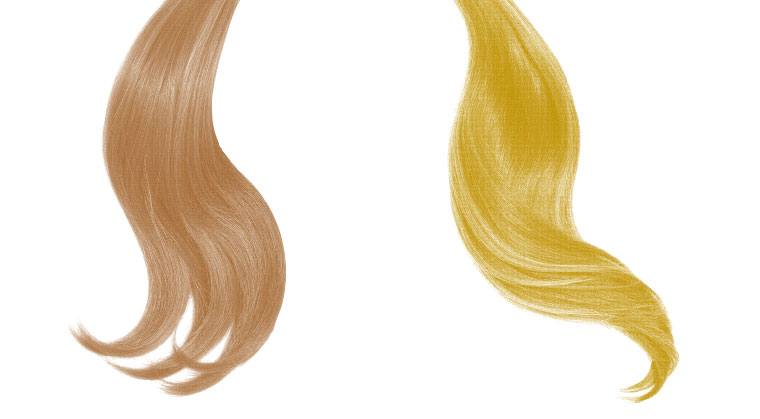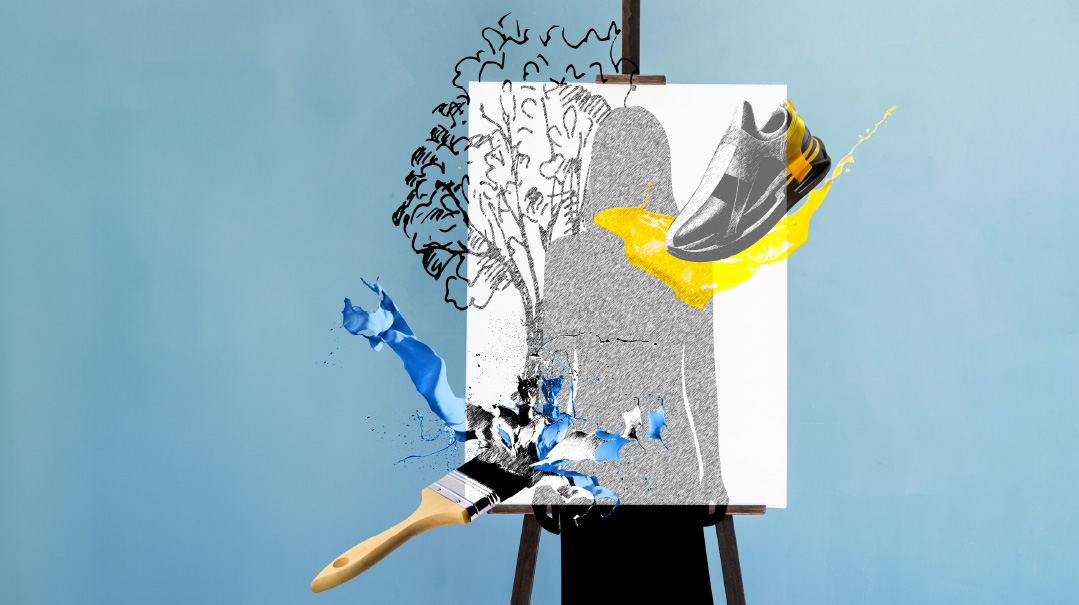Shared and Halved


The performance is going well, the surrounding mirrors reflecting every part of the act. My dear mother, to her credit, is playing her part perfectly too. We’re together at the sheitel salon, playing kallah and kallah’s mother as we nix one sheitel after the other.
Really, my age (almost) qualifies for me to be a kallah trying on potential wigs. But Hashem’s plans don’t necessarily run along the lines man envisions. So instead of replacing my hair with a wig in honor of my upcoming wedding day — which the other clients are here for — my wig purchase is for an entirely different reason. Notorious substances infamously known as chemo will soon wickedly remove every strand of my beautiful hair. Hence I need a replacement.
“You’re sure you don’t want me to tell her?” my mother asked when she booked the appointment. “She’ll be more understanding and give you the individualized attention you can use. Plus, you won’t have to endure complicated questions.”
“Ma! I’ve had enough of the individualized attention. Trust me, I’ll be getting more than enough attention when word spreads. Let me feel normal for as long as I still can.”
Secretly, I was also anticipating the dropping jaws when I would repeat the insanity of my mock kallah status to my friends. In addition to religiously going by my never-a-dull-moment mantra, I wasn’t going to let my sickness ruin my love for life and fun.
I’m trying to make the most of my appointment, walking the walk and talking the talk of a true bride.
“So, when is the wedding?” Reizy, the sheitelmacher, asks.
“No date yet,” my mother says nonchalantly as she lifts a highlighted blonde beauty and scrutinizes it near the window in the natural light. I nod my head, granting approval. Reizy picks up on the almost imperceptible nod and arranges the wig on my head.
“Crazy these days. They say getting a date at a hall is almost harder than finding your bashert,” Reizy intones as she expertly parts the sheitel in a way that emphasizes the highlights too much. I purse my lips in the mirror and realize my mother’s expression is mirroring mine. Nopes. Too wiggy.
Combing with my fingers, I bring the hairs to the side, then push them back, aiming for a natural flowing look. I frown. “Looks way too big and not very natural.” My mother nods while Reizy drones on and on about how voluminous is the thing now and how customers ask for more highlights like she asks for more dessert every Shabbos.
We laugh, my mother and I, as Reizy goes through more wigs. As an afterthought, she scoops up a rather thin looking wig with tamer highlights. The volume and color of this one is literally identical to my hair.
“Try this!” my mother and I exclaim together. It doesn’t take long for some proficient snips to achieve a complete duplicate of my hair. It falls naturally and I think the change would be noticed only by an uber-discerning eye.
The mirrors show a satisfied customer and I jump off the stool, relief washing over me. “Thanks Reizy. You’re the best!”
“Enjoy it and mazel tov!”
While packing up, another customer saunters in and Reizy motions for them to sit down on the plastic, orange, metal-legged chairs. (Bad job, decorator. Where does orange come in at a salon?) With the entrance of a kallah, I straighten my back and enter the kallah mode more emphatically. The drama is heightened when I ask my mother (after two winks) if she thinks Shia (my imaginary chassan) will like the wig.
My mother nearly chokes on her own saliva and replies, “He’ll like everything about you, sheifeleh.”
Reizy is adjusting the wig on the foam head, inserting T pins as if they’re going out of style. I observe the kallah from a distance. She appears to be uncomfortable in her own skin, as if her mother forced her out of bed. I’m reminded of all the moody-kallah stories my sisters would regale me with after their exhausting kallah-shopping days: How kallahs would have mascara dripping down the gowns they were trying on at the gown rental because they were suddenly so overcome with emotion, or how kallahs would dance, starry-eyed, in the furniture store, so excited to eat breakfast on this very table with their very precious chassan very soon. And the best yet: how kallahs would dance jubilantly and be in tears a millisecond later and then a few minutes later resume dancing. Yes, a kallah’s emotions are rather turbulent.
I muster some courage and flash her a smile. “It’ll be a breeze. Reizy is great! Good luck.”
A small nod serves as a response.
“Poor kid,” I tell my mother as we exit the salon with our pricy acquisition perfectly positioned in its box, “a real frazzled kallah.”
The look on my mother’s face tells me everything she’s containing inside. And that, I can bet, is Who is the poor kid? If only we were here for kallah shopping.
“Bezras Hashem we’ll be back here for good reasons. Ma, have faith.”
My mother looks away and then squeezes my arm. Flummoxed, I wonder where those words came from.
Later in the week my parents drive me to Manhattan. Automatic doors swallow me into the hospital lobby as if welcoming me to what will be my second home for the next few months. White and white and more white stare at me wherever I turn. Two elderly women, arms linked, hobble over to the mint green chairs positioned near the desk (the only sign of life on the entire floor). Thanks to their age, they are relatively bald, and I don’t need to tell you what their lack of hair is making me think. My hands go straight to my scalp. Great. My hair is still on my head. They said it will take approximately two weeks for the symptoms of the chemo to be evident on the outside. (Boy was it evident on the inside!) They also said that it will be bearable. It already isn’t.
I’m in the waiting room waiting for my bloodwork results; blood count needs to be determined in order to proceed with chemo. First, they need to ensure you have a minimum level of strength and shortly thereafter the chemo makes you weak, weak, weak, taking every ounce of strength with it. Go figure. Really, I know the answer. It’s just one of the things I refuse to understand and try to reiterate the question whenever I’m in the mood to kvetch (which I’ve been doing an awful lot of these days).
I’m about to throw a little tantrum when the door to Dr. Colemink’s office opens. Some shuffling is heard as the patient and her parents get ready to leave. Many people, secretive people, give you the cold shoulder in the waiting room. Frankly, I don’t think it’s the ideal choice. My parents always daven that we should never meet any familiar faces. Not because my situation is being kept under wraps, but because they bear the face that there are other Yiddishe kinderlach out there suffering.
A girl approximately my age files out, flanked by her parents, who are both clutching wads of white paper scrawled with lots and lots of fine print. I recognize her. She still looks uncomfortable in her own skin. Can I muster the courage to flash a smile again?
(Originally featured in Mishpacha Jr., Issue 745)
Oops! We could not locate your form.













